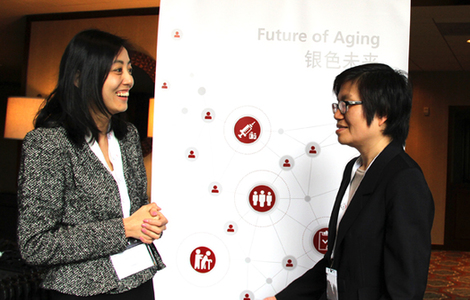Chinese investors still face unnecessary hurdles in the US
Updated: 2015-03-31 06:11
By Chang Jun(China Daily USA)
|
||||||||
The United Kingdom differs from the United States in many ways — weather, food, and the way they speak English.
In recent years another kind of contrast has been emerging: Britons are showing an increasingly warm welcome to Chinese investment, while a handful of US politicians are still locked in a Cold War mentality and keep harping on a so-called “China threat”.
On March 26, when China’s Geely Group made headlines worldwide by announcing its investment of $372 million to build a new facility for the London Taxi company in the UK, chairman of ChemChina Ren Jianxin openly criticized the US over repeated visa rejections, which resulted in the biggest chemical group in China missing out on investment opportunities in the US.
Both British Prime Minister David Cameron and the Mayor of London Boris Johnson visited the London Taxi Company on March 26, with Cameron delivering a speech hailing the largest ever Greenfield investment by a Chinese company in the UK.
“Geely’s 250 million pound investment and the creation of up to 1,000 jobs is great news for Coventry and a vote of confidence in our long-term economic plan to back business, create jobs and secure the recovery,” Cameron said, adding that Britain was one of the “most open and attractive economies”, Chinese investment was welcomed and was good for China and for Britain in terms of creating jobs and livelihoods.
Li Shufu, founder and chairman of Geely, said the investment symbolized the close business links between China and the UK, adding that Britain remained an attractive market for Chinese investment.
As for Ren Jianxin and his ChemChina, which has completed overseas acquisitions in France, Norway, Israel and Australia, as well as becoming controlling shareholder of Italian tire-maker Pirelli last week, the US has been giving them the cold shoulder.
According to reports in the Financial Times, the Chinese industrialist said he was scheduled to attend a series of important business meetings in the US in January, February and March, but he could not make them because the US government rejected his visa applications.

“Inevitably this has left a bad impression on our potential (US) business partners who may think I am not serious about opportunities there,” Ren said.
Although China and the US reached an agreement last year that they would issue 10-year visas to promote commerce and tourism between the world’s two largest economies, Ren has yet to be a beneficiary of the program and is still the victim of a “misunderstanding” on the part of the US government.
Because of his inability to reliably obtain a valid US visa, Ren’s admission to the US is restricted to a every-other-year basis — one year the US government grants him a visa and the following year they decline his application. So he has no option but to travel to Europe and other parts of the world to seek investment opportunities.
Many Chinese companies face challenges operating in the US because of some deliberate political hurdles. In October of 2014, the US banned the world’s largest telecom company, Huawei and other leading Chinese tech companies such as ZTE, from bidding for US government contracts due to suspicions that they undertake industrial espionage for China.
Earlier in 2013, Washington had ordered several major government departments, such as NASA and the Justice and Commerce departments, to seek approval from federal law enforcement officials before purchasing internet equipments from any Chinese vendors.
With annual revenues of more than $40 billion, Huawei operates in 150 countries and has 65 percent of its income from business outside of China. Refuting all of the US’ suspicions, Huawei is confident in its global ambitions even without the US market. “If they (the US) are not ready, we can wait,” said Huawei CEO Guo Ping in an interview with BBC.
In 2014, about 1.84 million Chinese applied for US non-immigrant visas and about 90 percent were approved, according to the US Embassy in Beijing. In the same year, Chinese direct investment in the US surpassed $10 billion, according to the Rhodium Group.
Contact the writer at junechang@chinadailyusa.com.

 6 cultural differences between China and the US
6 cultural differences between China and the US
 Mother illustrates her pregnancy
Mother illustrates her pregnancy
 In memory of movie star Leslie Cheung
In memory of movie star Leslie Cheung
 Top 10 best employers in China in 2015
Top 10 best employers in China in 2015
 World's largest reclining Buddha statue in Jiangxi
World's largest reclining Buddha statue in Jiangxi
 First round-world solar flight stops in China
First round-world solar flight stops in China
 Elderly care explored for investors, needy
Elderly care explored for investors, needy
 Sasha Obama took trip to China
Sasha Obama took trip to China
Most Viewed
Editor's Picks

|

|

|

|

|

|
Today's Top News
US 'miscalculated' on AIIB: Albright
PMI indicates that factories are expanding again
Chinese woman charged with fraud remains in US jail
46 countries apply to AIIB
Tales of a nomad
US 'willing to work with AIIB': Lew
Silk Road connects China to the world: BOC chairman
Washington 'willing to work with AIIB'
US Weekly

|

|







